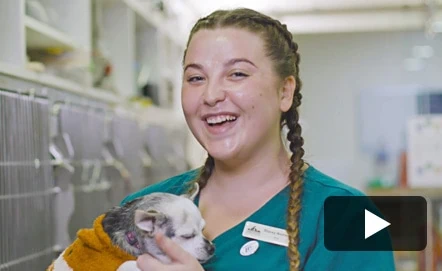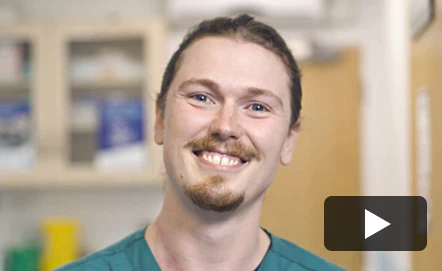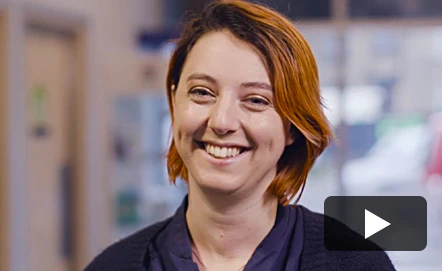FOR FURTHER INFORMATION
There are some excellent online resources to help with the next steps on your career journey!
If you have yet to decide which animal-related path to take, My Vet Future has a great summary of the different roles available within the profession.
If Veterinary Nursing is where your interest lies, then the British Veterinary Nursing Association, RCVS and VN Futures have some excellent guidance, leaflets to download and videos to watch!
If becoming a vet might be the right route for you, there are so many resources at your fingertips. The BVA and RCVS provide an array of information, from where the UK Vet Schools are located to how you can finance your studies.
CHARITIES/ORGANISATIONS
There are several charities and organisations which have been set up to widen access to the veterinary profession.
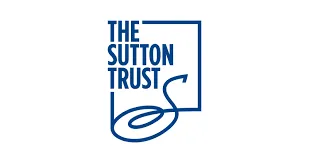
The Sutton Trust is an excellent initiative which provides support and further resources.
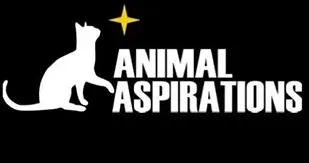
Animal Aspirations is a Royal Veterinary College student-led organisation which hosts student-led workshops in school aiming to increase diversity in veterinary medicine and animal-related careers.
Next Steps
If you are interested in arranging a work experience placement at one of our practices, please visit our practice directory. From there, you can select the practice, visit their website, and contact them directly to enquire about placements.
FAQ’S SECTION
What is the difference between primary care and referral veterinary practices?
Primary care vet practices are also known as first opinion practices – they are where you would take your pet if they became unwell and for all of their routine healthcare like vaccinations.
Vets and nurses who work in primary care practices have a good all-round knowledge and can carry out a wide range of different procedures.
Staff who work in referral practices tend to specialise in one area, e.g. Dentistry, Pain management, Therapy, etc. However, referral practices often have specialists in a wide range of different areas, so they are able to deal with more complicated cases. Primary care practices would “refer” a case to a referral centre if they had reached the limit of what they could do at their own practice.
What experience do you need to work with animals?
This can vary depending on what you want to do, but any experience is good experience! You might want to look into whether you can get experience on a local farm, work as a receptionist or assistant in your local vet practice or help out at your local kennels or cattery. Even working in a supermarket or shop is a great experience for working in the veterinary profession because all the animals we see have a person with them, so working with members of the public is great practice for working with owners later on!
Do I have to get straight A’s at A-level to be a vet?
Not anymore! Traditionally, the only route into a career as a vet was to do science and maths subjects at GSCE and A-Level and get straight A’s. Although this is still a route that many students will take, there are now other ways to get a veterinary degree. A lot of vet schools have revised their entry-grade requirements to widen access to veterinary education, which provides options for students who have done other qualifications prior to university.
The Veterinary Schools Council has an invaluable guide, taking you through processes and entry requirements for each of the UK’s vet schools, so be sure to visit their website.
For Scottish students, it is worth noting that subject choices as early as S3 are very important in ensuring students are able to sit the specific Highers in S5, which are currently required for entry into a veterinary degree.
For university-specific entry requirements, please visit the individual university websites or check the Veterinary Schools Council Admissions guide above.
I don’t want to be a vet or a nurse, but I do want to work with animals. What other options are there?
There are lots of other options for working with animals outside of veterinary practice. You might go into a career in conservation to protect wildlife, research to advance both veterinary and human medicine, or in education teaching the next generation of vets and nurses.
An alternative option would be to work as a Patient Care Assistant (PCA) (often called a Veterinary Care Assistant or Veterinary Nursing Assistant). The role of a PCA is vital in supporting the nursing and wider veterinary practice team to achieve the highest standards of patient care. Some PCAs work in several areas of the practice, whereas others may be based in one specialised area, such as theatre, wards or dispensary. The role includes:
- Exercising, grooming and feeding inpatients
- Monitoring and providing supportive care to inpatients
- Cleaning and preparing accommodation
- Preparing theatre and relevant equipment
- Restraining animals for treatment
- Reception duties, including advising clients on preventative health care
- Record keeping.
As a PCA, it is necessary to accept instruction from and be able to communicate with a variety of people, including management, veterinary surgeons and registered veterinary nurses (RVNs). Working enthusiastically within the team, PCAs help maintain a happy, efficient and effective working environment day to day.
What is the difference between a Patient Care Assistant (PCA) and a Veterinary Nurse?
To work as a PCA, there are no formal academic entry requirements. However, veterinary practices can usually support you with the required in-house training and development and/or a formal qualification if an individual would like to undertake one. There are certain tasks that cannot be delegated to a PCA. RVNs often carry out similar tasks to PCAs; however, under the direction of a Vet or RVN, you will be able to perform additional skills. These are referred to as Schedule 3 procedures, which include:
- Administering intramuscular and intravenous medication
- Taking blood samples
- Placing intravenous catheters
- Performing minor surgical procedures
- Performing some dental procedures
- In addition, RVNs will also assist with maintaining and monitoring anaesthesia during surgery, take x-rays, and educate owners.
The Royal College of Veterinary Surgeons (RCVS) regulates the veterinary nursing profession through the Veterinary Surgeons Act 1966, the Royal Charter and the Veterinary Nurse Conduct and Discipline Rules 2014 to protect the public interest and to safeguard animal health and welfare. To work as a veterinary nurse, you need to undertake formal training with a college or university that offers a qualification accredited by the RCVS.
Once qualified, a Veterinary Nurse must join the RCVS Register of Veterinary Nurses to be able to work legally as an RVN.
